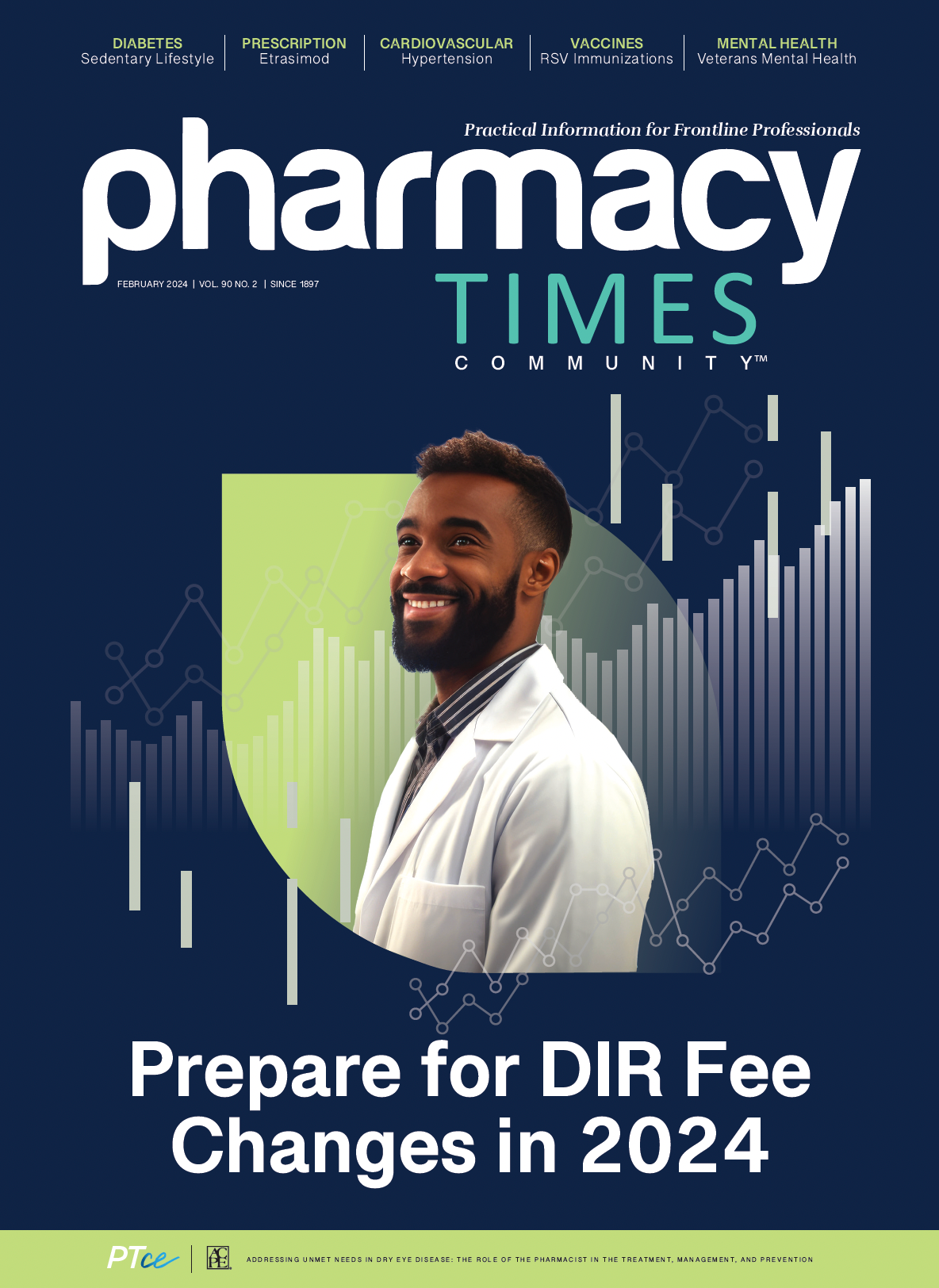Publication
Article
Pharmacy Times
Condition Watch: Migraine
Author(s):
Migraine Medication May Provide More Relief Than Ibuprofen
Some migraine medications, including triptans, ergots, and antiemetics, could be 2 to 5 times more effective than ibuprofen for the treatment of migraine attacks, according to the results of a study published in Neurology. The study included data from approximately 300,000 individuals who used a smartphone app to assist in decision-making regarding their medication.
Image credit: goodluz | stock.adobe.com

Investigators included data gathered from more than 3 million migraine attacks that were self-reported in a smartphone app during a 6-year period. The app allowed users to record the frequency of migraine attacks, triggers, symptoms, and how effective their medication was. Approximately 4.7 million treatment attempts with various medications were recorded for migraine attacks, according to a news release.
The top 3 classes that were more effective than ibuprofen were triptans, ergots, and antiemetics. Triptans were 5 times more effective than ibuprofen; ergots were 3 times more effective; and antiemetics were 2.5 times more effective, according to the results. When looking at individual medications, investigators found that eletriptan was 6 times more effective than ibuprofen; zolmitriptan was 5.5 times more effective; and sumatriptan was 5 times more effective. Eletriptan was helpful for the participants approximately 78% of the time; zolmitriptan was helpful 74% of the time; and sumatriptan was helpful 72% of the time.
Investigators also analyzed other groups of medications, including acetaminophen and nonsteroidal anti-inflammatory drugs (NSAIDs). Ketorolac was helpful approximately 62% of the time; indomethacin was helpful 57% of the time; and diclofenac was helpful 56% of the time. However, investigators noted that acetaminophen was helpful only 37% of the time, which was 17% less effective than ibuprofen, according to the news release. Additionally, the combination of aspirin, acetaminophen, and caffeine was approximately 69% more effective than ibuprofen.—Ashley Gallagher
Researchers Call for Expansion of Novel Drugs to Treat Migraine Attacks
Although nonsteroidal anti-inflammatory drugs (NASIDS) are often used to treat migraines, there have been many preventative medications approved to reduce the severity and frequency, including FDA-approved drugs such as erenumab (Aimovig; Amgen), galcanezumab (Emgality; Eli Lilly), and rimegepant (Nurtec; Pfizer).1 The treatment landscape for managing and preventing migraines has been rapidly evolving.
Newer treatment options include triptans such as sumatriptan, zolmitriptan, and rizatriptan, which are all selective serotonin agonists; however, these medications are not recommended for individuals who have cardiovascular risks, including ischemic heart disease, stroke, or uncontrolled hypertension.2 NSAIDs such as acetaminophen and other combination analgesics are used for as-needed OTC treatment and relief for headaches.
Calcitonin gene-related peptide (CGRP) receptor antagonists have been growing in prevalence in the migraine landscape. CGRPs are produced in the central and peripheral nervous systems, and investigators believe they can trigger migraines due to the effects of neurogenic inflammation.2 As of June 2023, there were 8 CGRPs approved by the FDA in the United States, including 4 monoclonal antibodies and 4 small molecule antagonists.
In March 2023, zavegepant was approved by the FDA as the first CGRP receptor antagonist as a nasal spray for the acute treatment of migraine in adults with and without aura.3 The recommended dose is a 10-mg single spray in 1 nostril as needed, with a maximum of 1 spray every 24 hours.4—Ashley Gallagher
COVID-19 Vaccination May Not Be to Blame for Worsening Migraines
Neurological symptoms are a common adverse effect following COVID-19 infection and vaccination. Individuals with migraines may be more at risk for neurological symptoms, including headaches. Patients report having prolonged, disabling headaches after COVID-19 exposure through vaccination or infection.
Researchers sent an online survey to migraine patients in a headache clinic (N = 550). The survey collected data on SARS-CoV-2 infection and vaccination rates. In total, 44.9% of patients self-reported having COVID-19 and 83.3% had received at least 1 dose of the COVID-19 vaccine. Patients tracked their migraine frequency and severity before and after vaccination or infection in an electronic diary. The researchers compared patients who reported migraines with patients without migraines.
The researchers found that headaches became more intense following COVID-19 infection or vaccination. Patients reported a temporary increase in nausea, photophobia, and phonophobia. The number of headache days did not increase.
The increase may have been psychosomatic, a manifestation called the nocebo effect, in which concerns about the pandemic and the vaccine may have triggered a headache. Anxiety surrounding worsening headaches was a significant risk factor for increased headaches. Widespread reports of increased headaches may be anecdotal, not indicative of cause and effect.—Janelle McSwiggin, MSN, RN
References
Migraine Medication May Provide More Relief Than Ibuprofen
Certain migraine medications may be more effective than ibuprofen. News release. American Academy of Neurology. November 29, 2023. Accessed November 30, 2023. https://www.sciencedaily.com/releases/2023/11/231129174011.htm
Researchers Call for Expansion of Novel Drugs to Treat Migraine Attacks
Migraine. National Institute of Neurological Disorders and Stroke. July 11, 2023. Accessed November 13, 2023. https://www.ninds.nih.gov/health-information/disorders/migraine
Wilson A. Migraine treatments: past, present, and future. Pharmacy Times. June 21, 2023. Accessed November 13, 2023. https://www.pharmacytimes.com/view/migraine-treatments-past-present-and-future
Hunter E. FDA approves zavegepant nasal spray for acute treatment of migraine in adults. Pharmacy Times. March 10, 2023. Accessed November 13, 2023. https://www.pharmacytimes.com/view/fda-approves-zavegepant-nasal-spray-for-acute-treatment-of-migraine-in-adults
Holmberg M. Zavzpret from Pfizer. Pharmacy Times. August 16, 2023. Accessed November 13, 2023. https://www.pharmacytimes.com/view/zavzpret-from-pfizer
COVID-19 Vaccination May Not Be to Blame for Worsening Migraines
Melgarejo L, Caronna E, Rosell‐Mirmi J, et al. Migraine worsening after Covid‐19 and Covid‐19 vaccination: Aare we facing a nocebo effect? Eur J Neurol. 2023;30(12):3877-3885. doi:10.1111/ene.16058

Newsletter
Stay informed on drug updates, treatment guidelines, and pharmacy practice trends—subscribe to Pharmacy Times for weekly clinical insights.





